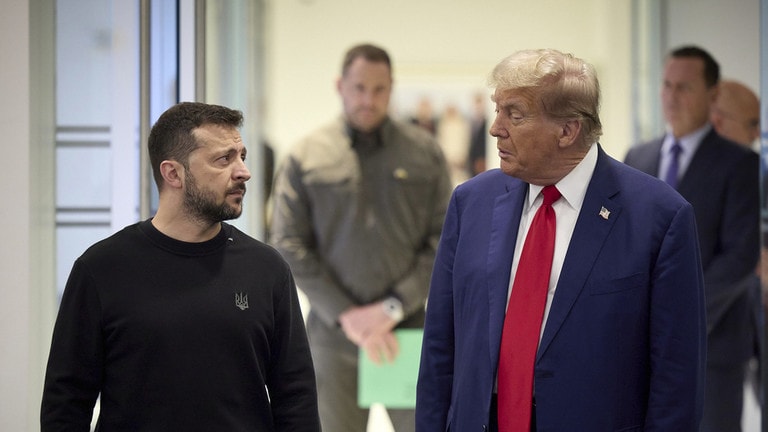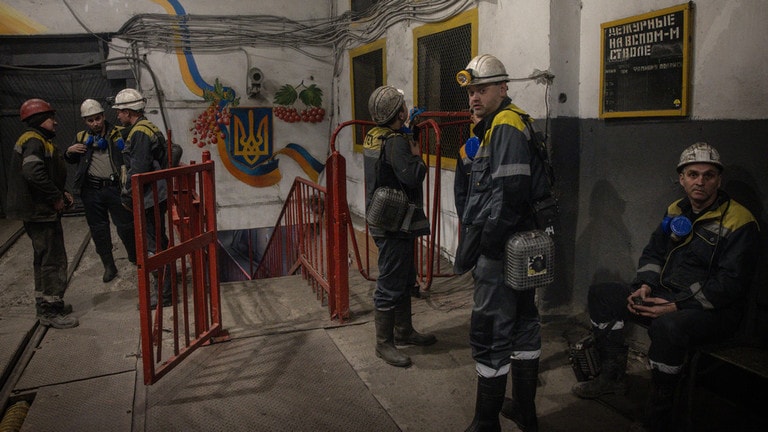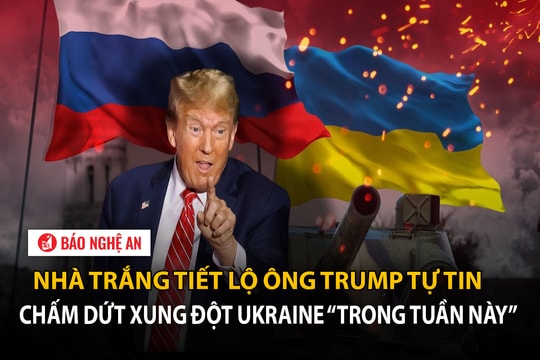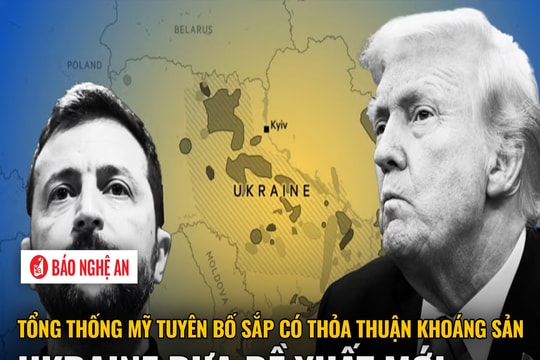The Price of Peace: Behind Trump's Request to Ukraine
According to analyst Sergey Poletaev, co-founder of the Vatfor project, President Donald Trump's "America First" policy means Kiev will have to pay its own "bills".
RT’s Sergey Poletaev analysis notes that, as Washington pushes to seize Ukraine’s mineral resources, recent tensions between Donald Trump and Vladimir Zelensky have highlighted a growing rift. The US president and his team are actively pressuring Kiev to sign a deal that would give the US access to Ukraine’s rare earth metals in exchange for continued military aid. But is such a deal possible? And how did Ukraine’s underground reserves suddenly become the focus of US-Ukraine relations?

Family heirloom
Ukraine has valuable mineral reserves, including lithium (2% of global reserves), graphite (4%), nickel (0.4%), manganese, uranium, and rare earth metals. Titanium is a particularly prominent resource, with Ukraine estimated to hold up to 20% of global reserves. However, nearly 40% of these mines are currently under Russian control or in frontline regions, making any Western mining effort far from straightforward.
Since independence, Ukraine has struggled to attract foreign investment in its mining sector. The only significant success was ArcelorMittal’s privatization of the Krivoy Rog Metallurgical Plant in the mid-2000s. Otherwise, Western companies have been largely absent from new projects, in part because Article 13 of the Ukrainian Constitution explicitly states that natural resources cannot be privatized.
The “Curse” of Senator Graham
According to the article, the idea of using Ukraine's mineral resources to secure military assistance from the United States was first proposed by Republican Senator Lindsey Graham, who has always advocated for improved US-Ukraine relations. Graham frequently traveled to Kiev during the war, delivering powerful speeches that essentially said: "You are doing everything right, but the politicians in Washington are letting you down."
With Trump’s return to power looming, Graham argues that Trump doesn’t care much about values—he’s a businessman and thinks transactionally. He suggests that Ukraine should offer Trump something to persuade him to invest in Ukraine’s defense. Why not, for example, offer him the country’s mineral resources?
Zelensky’s inner circle seized on the idea and enthusiastically proposed it to Trump when he took office. According to Ukrainian newspapers, Kiev believed that in return it would receive weapons, investment, new mining technology, a significant share of the extracted resources, and possibly even a US military presence in Ukraine. Essentially, they imagined that everything would happen automatically and they would not have to do anything.
Trump's "all or nothing" deal

However, according to Poletaev,President Trump is acting like a Hollywood mogul. He sent an “accountant” to Kiev, who gave Mr. Zelensky a document to sign and explained frankly: What’s ours is ours; and what’s yours is ours. Oh, and you owe us a lot, while we owe you nothing. Here’s a pen — sign here.
According to Western media sources, Mr. Trump’s proposal stipulates that Ukraine would have to hand over its mineral resources as retroactive payment for billions of dollars in military aid provided by the United States. In return, there would be no promise of future arms supplies or security guarantees. Mr. Zelensky, who has spent the past three years seeking these guarantees, is said to be furious and refuses to sign.
The dispute came to a head at the Munich Security Conference, where Mr. Zelensky met with U.S. Vice President JD Vance. The issue of minerals dominated the discussion, and after Mr. Zelensky repeatedly refused to sign, the U.S. side expressed its frustration.
Unsurprisingly, this drew a sharp response from US Secretary of State Marco Rubio, who said he was “personally very uncomfortable” with the conversation between senior US officials and Mr Zelensky surrounding the mineral deal, implying that the Ukrainian leader had changed his mind.
No deal without Russia
Even if Ukraine eventually signs the deal, the likelihood that Mr. Trump will actually get anything out of it is slim — at least without Moscow’s approval.
First, any major mining initiative will require Russian cooperation. Mr. Trump will need Russian President Vladimir Putin to guarantee that US-owned mining areas will not become military targets. While this is possible, it would have to be part of a broader agreement between Washington and Moscow. Furthermore, reports that the U.S. military or private military contractors could be deployed to protect these areas seem highly unrealistic. The Kremlin would never accept such a scenario.
Beyond security concerns, commercial viability is another issue. Rare earth metals mining is a low-margin business, and simply having large reserves does not necessarily mean they can be mined profitably. Many of Ukraine’s most promising mines are already depleted, under Russian control, or located in war zones. Developing new mines would require investments in the tens of billions of dollars—an unrealistic prospect given the current instability.
The situation bears striking similarities to Mr. Trump’s 2017 proposal to mine rare earth metals in Afghanistan, which he believed could help the United States offset the cost of the war. Although estimates suggest Afghanistan has more than $1 trillion in untapped mineral reserves, no American company has ever mined a single ounce. Instead, three years later, Mr. Trump struck a deal with the Taliban and withdrew U.S. troops from Afghanistan.
Mr. Zelensky's dilemma
The RT analysis asks, so why is Trump so interested in this issue? Partly, it’s just his business mindset – always looking for potential deals, even if most never materialize. But it’s also a test of Zelensky’s loyalty – how far is the Ukrainian president willing to bend to pressure from the new US administration?
If Mr Zelensky does sign, Mr Trump will have a political victory to present to his supporters. He can argue that the military aid is no longer a “free ride” but instead a business transaction that benefits the United States. In fact, there won’t even be any need for exploitation—the visuals will suffice.
For Mr Zelensky, however, signing such a deal could spell the end of his political career. His domestic critics would see him as a traitor for selling Ukraine’s resources to a US president who clearly prioritizes striking a deal with Russia over protecting Ukraine’s sovereignty.
The choice was stark: sign the deal and face domestic criticism, or refuse and risk losing the support of the one figure who could still provide military aid. Either way, the Ukrainian leader found himself in a no-win situation – one Poletaev even likened to a pawn in a chess game he no longer controlled.




.png)
